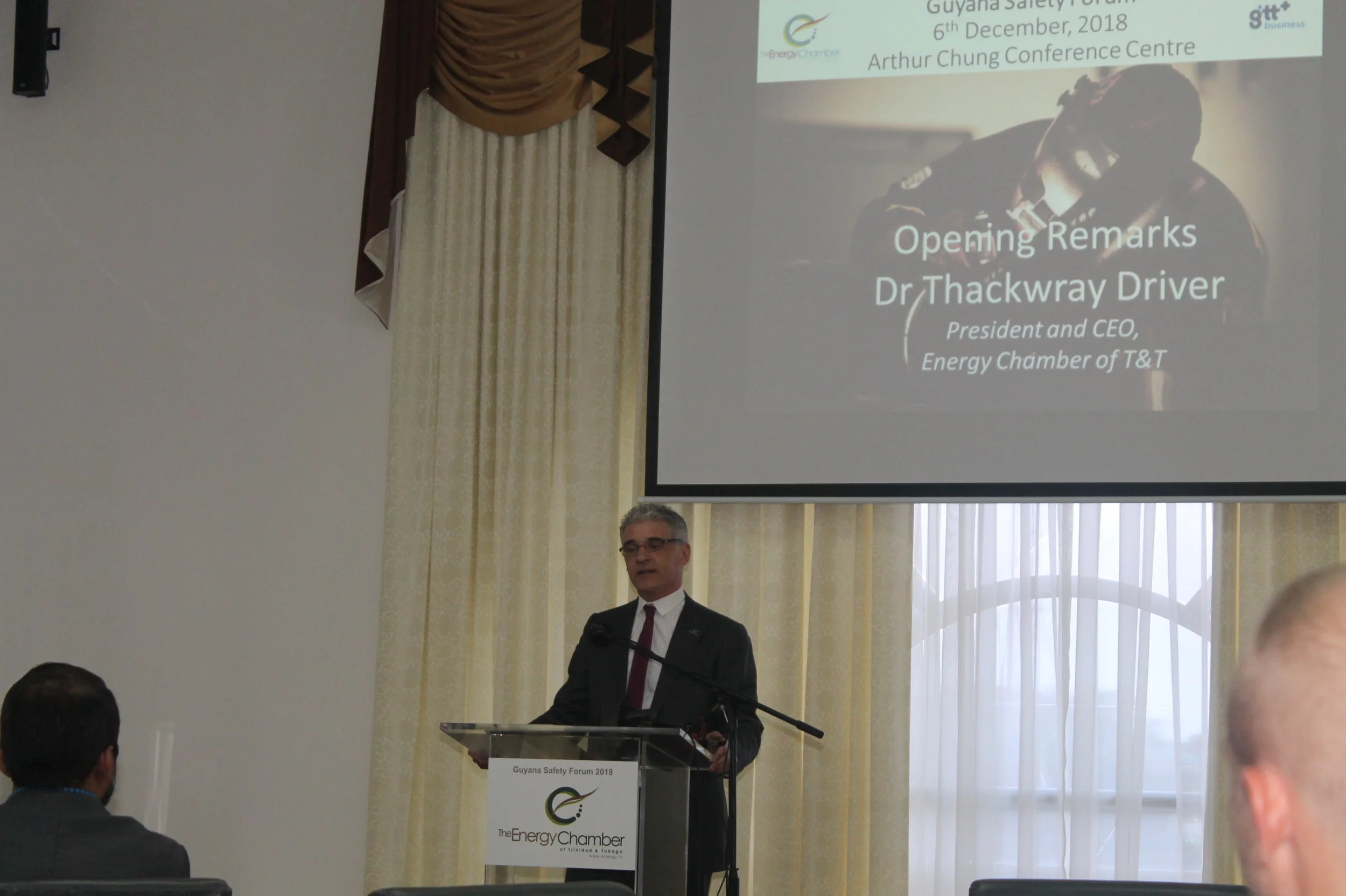In an interview with Proactive Investors UK earlier this year, Chairman of Columbus Energy Resources plc (Columbus), Leo Koot, said that this was the year for which they have been waiting.
The World Economic Forum (WEF) 2018 Global Competiveness Index (GCI) ranks Trinidad and Tobago (T&T) as last out of 140 for Co-operation in Labour-employee relations. This article explores the role possibilities for trade unions given that we are in the early stages of the Fourth Industrial Revolution (4IR) which is poised to radically transform the workplace.
Mike Wylie, Chief Executive Officer of Heritage Petroleum, has indicated that many of the services that were previously conducted in-house at former Petrotrin, will be contracted out in the new upstream-focused state oil company.
During the first two months of 2019, Paria Fuels imported 448 million litres of petroleum products to service both the domestic and regional markets, previously supplied directly from the now mothballed Point a Pierre refinery. Most of the imported fuel went to service the local Trinidad & Tobago market, with a total sales volume of 213 million litres over the two months, with a further 190 million litres being re-exported. The balance of the imports would be held as inventory for later sales.
BHP has announced that it has found hydrocarbons in its latest deepwater well in Trinidad & Tobago’s deepwater block 23(a). The Bélé-1 well is the first of a three well programme to test prospects around the Bongos discovery, made in 2018. The well is being drilled by the Deepwater Invictus rig and was spud on 2 March 2019 in 2,102 meters water depth. The total planned well depth is 3,693 meters. The 31st March BHP operational review noted that drilling was still in progress.
Organizations are incessantly gathering information and data across every element of their supply chains, from oil fields and pipelines, to refineries, power stations and manufacturing. It has been estimated that 90 per cent of the data in the world today has been created in the last two years alone, but it is feared that data overload is causing a barrier to the effective use of this information.
The Energy Chamber of Trinidad and Tobago’s (Energy Chamber) conference theme of ‘Technology: Transforming the Industry’ will rightly be interpreted by many as a call to acknowledge the role that innovative geological, engineering, process, and IT solutions have – and will continue to have – as local energy companies strive to maintain global competitiveness. I endorse this, but I would like to broaden the idea of the technology impact to consider the impact of new technologies in the space of reputation management, namely social media.
As with many industries, the evolution of the energy sector is increasingly being driven by technology — more advanced solutions that continue to propel the industry forward.
The trick is old hat now. Whenever OWTU leader Ancel Roget wants to stir things up a bit, he will accuse the ‘elites’ of conspiracies and actions to hurt the rest of the country.
Change management models need to be rethought. Change management is usually applied at the organisational level with a focus on controlling disruption and transitioning people towards a new modus operandi. There is need to broaden this context by tracing the implications of the fourth Industrial Revolution (4IR) from the global level to the individual.
BP Trinidad and Tobago (BPTT) today announced first gas production from its Angelin development. The project was delivered on time and under budget.
We are in the midst of a revolution. Digital technology is transforming every aspect of human lives, levelling the playing field and causing shifts in the balance of global power. Germany has sought to hijack and capitalise on this movement to the benefit of its manufacturing sector by labelling it ‘Industrie 4.0’ (Industry 4.0) and positioning itself as the world leader. While creating a focus for research and development (R&D) activities in larger Germany companies, its allimportant ‘Mittelstand’ or small and medium enterprises (SME) sector has been a bit slower to adopt the emerging technologies, and it is debatable whether Germany really is the global leader.
Just another of his PR stunts or not, in the past week the Public Service Association’s leader, Watson Duke, threatened a sickout due to a dispute over health claims by some 400 workers at the Housing Development Corporation.
The merit of his claims is something to be sorted between the PSA, HDC’s managers and, if needed, the relevant tribunals. However, what cannot be ignored is Mr Duke’s threat of having public servants skipping work in a coordinated way because, to put it in plain English, that is a strike and that is illegal.
Oil players in Trinidad & Tobago are urging changes to the government’s supplemental petroleum tax on oil production, which they say in its current form discourages investment and inhibits oil exploration.
Fossil fuels are going to remain an important part of the energy mix for many years to come, but renewable energy is growing quickly. Trinidad and Tobago needs to be aware of this reality and embrace the global energy transition to a lowercarbon future. The energy transition is being driven not just by climate change policies, but also by technological innovation and the changing economics that the technological revolution has spurred.
If Guyana is to experience sustained growth leading to the development of a worldclass energy industry that benefits the local economy, it is critical that a robust safety culture is embraced now. Imperative would be the adoption of safety systems and procedures that international operators consider basic to a safe and productive operation. Adherence to such systems would also give locally owned and operated contractors greater access to work in the sector, which will enhance local content development.
The energy sector has predominantly had more males than females in senior roles. This is a global phenomenon and is not unique to Trinidad and Tobago. The International Energy Association (IEA) stated in an article in 2018 that the energy sector remains one of the least gender-diverse sectors, despite recent efforts to promote and encourage women’s participation. The IEA article alludes to inclusion of all human resources for key drivers of innovative and inclusive solutions.
The value and volume of business for energy services companies remain below normal. Fifty-nine per cent of energy services companies polled indicated that the value of their business was down in the third quarter of 2018.
DeNovo moved from start-up, new upstream operator to Trinidad and Tobago’s first local natural gas producer in just under 3 years, delivering first gas from the Iguana field in Block 1(a) in November 2018. Founded in 2016 by Joel “Monty” Pemberton, DeNovo’s Iguana greenfield development involved drilling three production wells, installing a Sea Swift conductor supported platform, along with a 45 km offshore and onshore pipeline, and constructing an onshore Gas Processing Unit with a capacity to process up to 90 MMSCFD of natural gas.
In 2018, the national spotlight was on the closure of the Petrotrin refinery and many were concerned about the availability of refined products, in particular, transport fuels. Most of these concerns appear to have been alleviated with the functioning of the new company, Paria Fuel Trading Company.





















